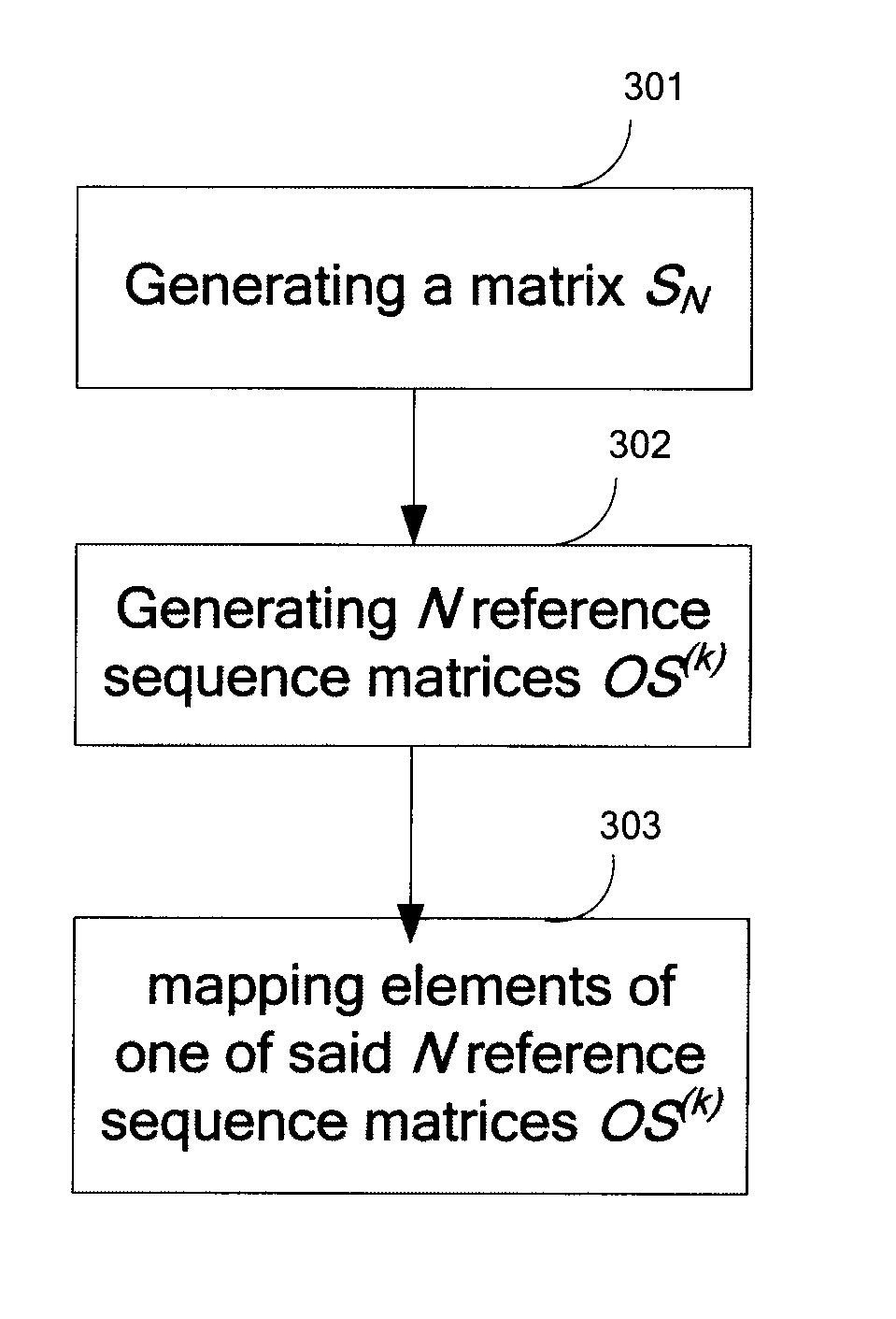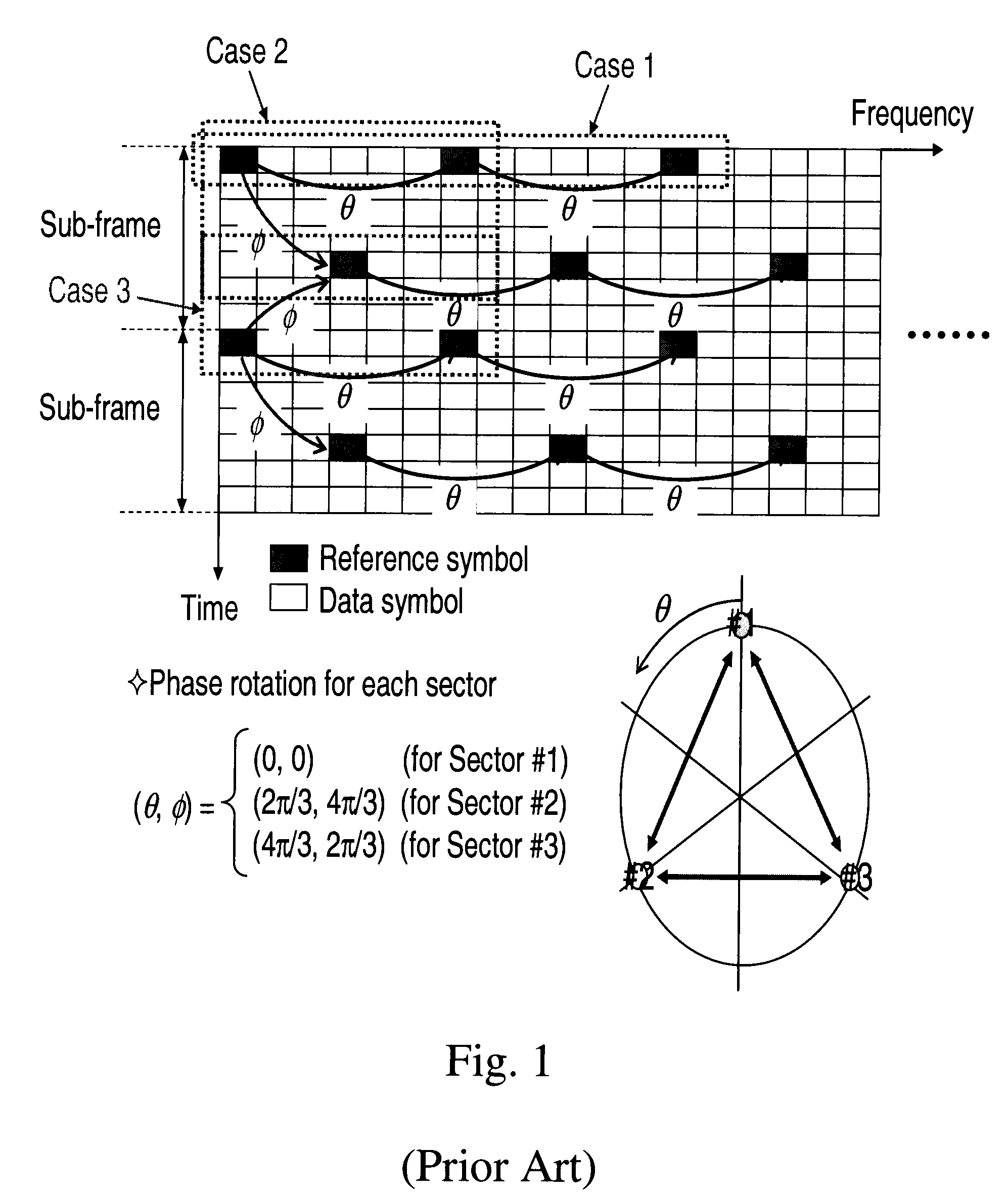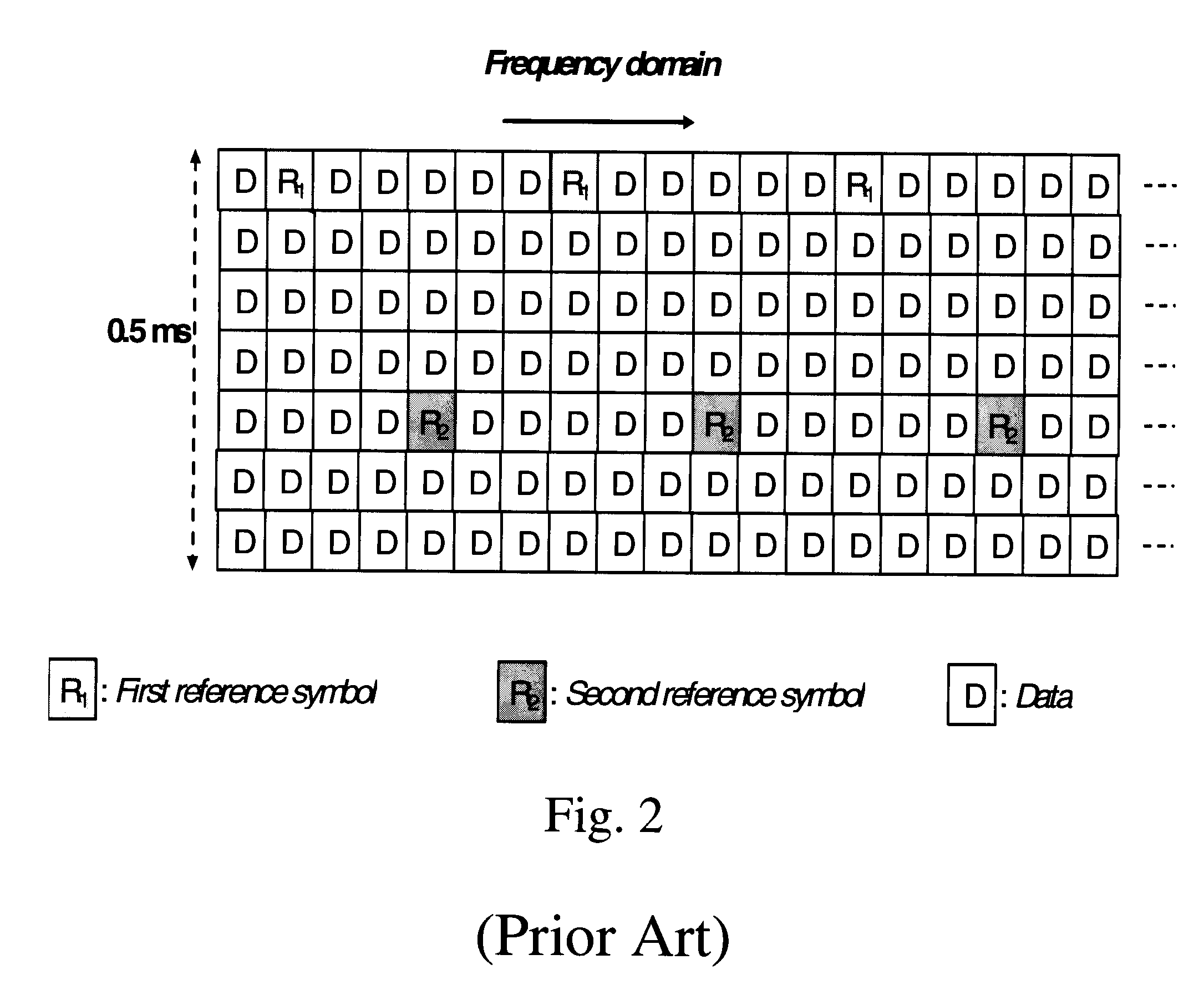Method, transceiver and telecommunication system for generating reference sequence matrices and for mapping elements thereof
a reference sequence and matrices technology, applied in the field of telecommunication, can solve problems such as inefficient cell search, conventional reference sequences, and fixed rules in the conventional cell search procedur
- Summary
- Abstract
- Description
- Claims
- Application Information
AI Technical Summary
Benefits of technology
Problems solved by technology
Method used
Image
Examples
Embodiment Construction
[0022]In the cell search, if the number of group IDs could be relatively small, a high detection rate is achieved in the 2nd step, since few candidate sequences have to be evaluated. However, a reduction of the number of group IDs (i.e., PRSs) needs to be compensated by using more OSs, since the number of PRSs times the number of OSs should equal the number of cell IDs, which is a fixed number. On the other hand, increasing the number of OS may reduce the detection rate of the 3rd step in cell search, because more candidate sequences have to be evaluated and more OSs imply longer OSs, since the length of OSs must be equal to the number of OSs. Longer OSs make the correlation detection more susceptible to channel variations over the reference symbols. Thus, in terms of cell search performance, there is a trade-off between the number of PRSs and the number of OSs. In Ericsson, it was suggested, with little motivation, to fix the number of sequences to 170 PRSs and 3 OSs, resulting in ...
PUM
 Login to View More
Login to View More Abstract
Description
Claims
Application Information
 Login to View More
Login to View More - R&D
- Intellectual Property
- Life Sciences
- Materials
- Tech Scout
- Unparalleled Data Quality
- Higher Quality Content
- 60% Fewer Hallucinations
Browse by: Latest US Patents, China's latest patents, Technical Efficacy Thesaurus, Application Domain, Technology Topic, Popular Technical Reports.
© 2025 PatSnap. All rights reserved.Legal|Privacy policy|Modern Slavery Act Transparency Statement|Sitemap|About US| Contact US: help@patsnap.com



